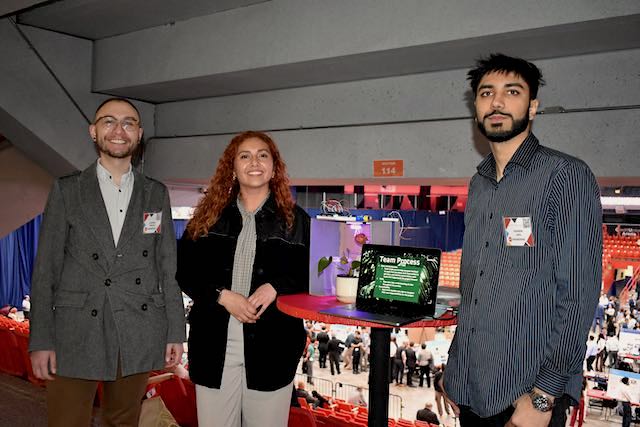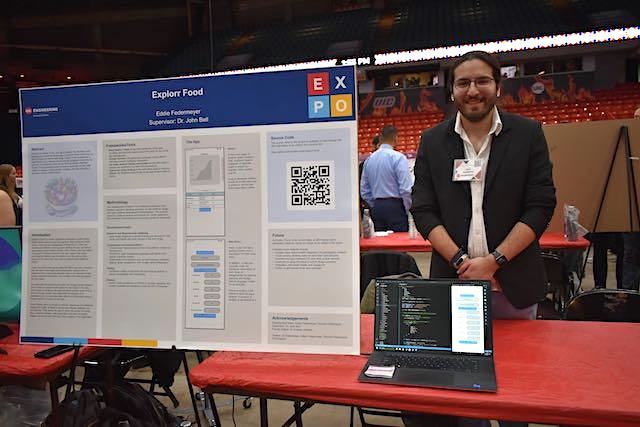Computer Science students shine in Engineering Design Expo
Computer Science students shine in Engineering Design Expo
On April 19, hundreds of UIC College of Engineering students participated in the UIC Engineering Design Expo at the Credit Union 1 Arena.
The expo featured teams from across the College of Engineering (COE) who were challenged to solve real-world engineering problems as part of a required senior design course. Over 150 judges, including Chicago-area computer science and engineering professionals, alums, and former COE faculty, took part this year.
Computer science, unlike other departments in the college, offered this year’s 77 teams the option to present over two days in class; first presenting their designs, then product demonstrations, or participate in the Expo. Twenty-two teams opted to present at this year’s Expo.
Projects ran the gamut from games to weather stations and an automatic cereal dispenser.
plant care

Remote plant care
Team 21, consisting of Seth Strzechowski, Cynthia Sanchez Vazquez, Rushikesh Joshi, and Alexander Yarkulov opted to present in front of judges at the event. Their project, BotaniCare, is a plant care system that monitors plant health, tracking soil moisture, light levels, room temperature, and humidity. LEDs cycle on and off to simulate day and night, and the system waters the plant as needed.
Arduinos collected data via attached sensors and communicated via a chain link process to control the water and lights. The team built BotaniCare for about $60 and said the system could be scaled to accommodate additional plants with more hardware.
Yarkulov and Vazquez will graduate in the Fall of 2024, and Joshi and Strzechowski expect to graduate in the Spring of 2025.
A better food tracker

A better food tracker
Eddie Federmeyer, a member of UIC’s Honors College, presented his capstone project at the Expo, Explorr Food. His interest in developing a food-tracking app was inspired by a diabetic relative who needed to monitor their nutritional data. Explorr Food allows users to log their caloric and nutritional data and employs AI to help estimate meal nutrition data when none is provided.
Federmeyer used React Native + Expo for front-end features and as the application program interface, Google Gemini as the generative language model to estimate a meal’s nutritional value, VS Code, Android Studio, and Xocode to develop the app for iOS and Android, Typescript using Node.js for main stack development, and SQLite to store data on the device.
Federmeyer hopes to add features into the app in the future. He is part of the 4+1 Master’s Degree program, so he will continue his studies at UIC next year. This summer, he will work with Associate Professor Boris Glavic on his Gprom database middleware and continue work on a game he and some colleagues began developing this semester.